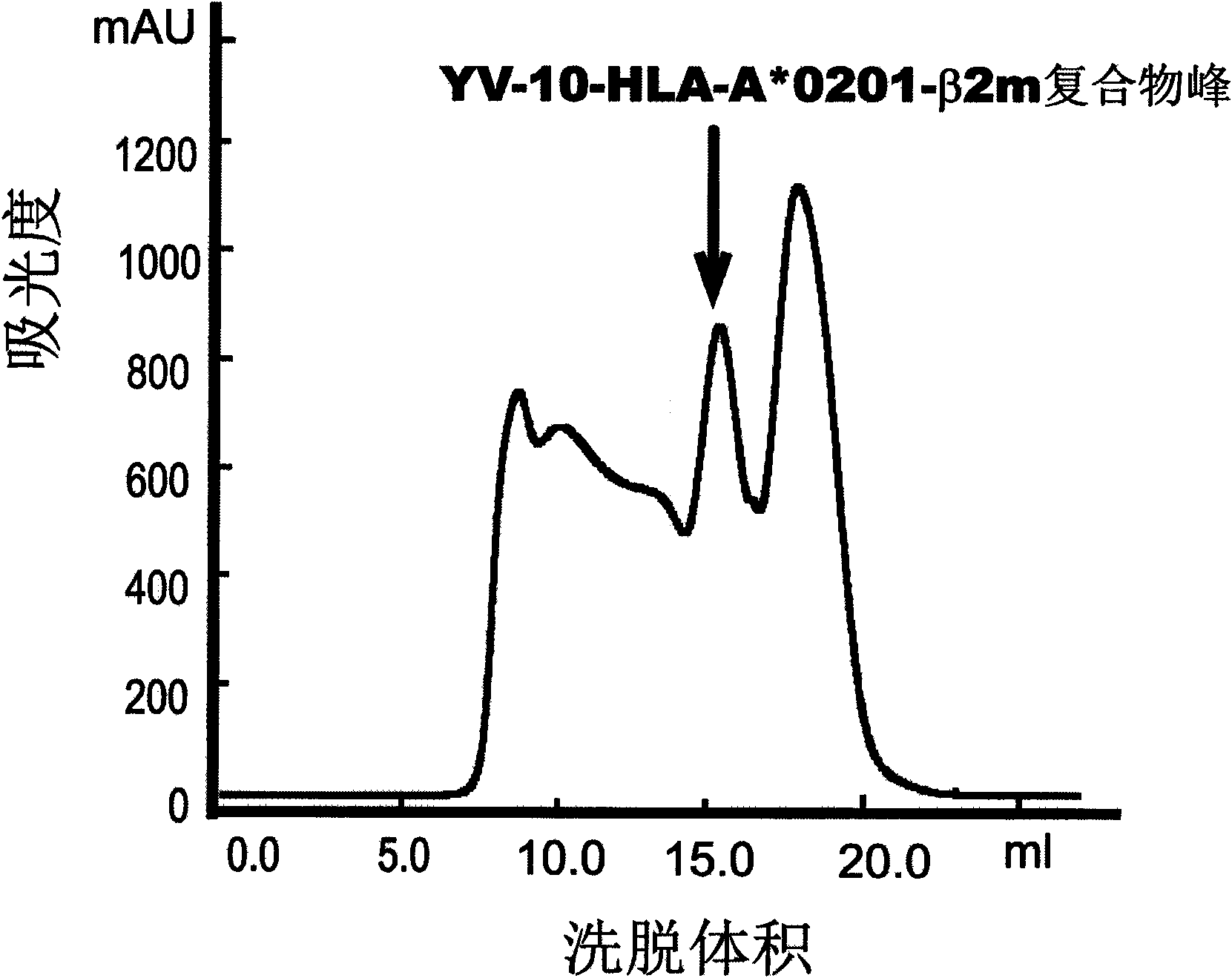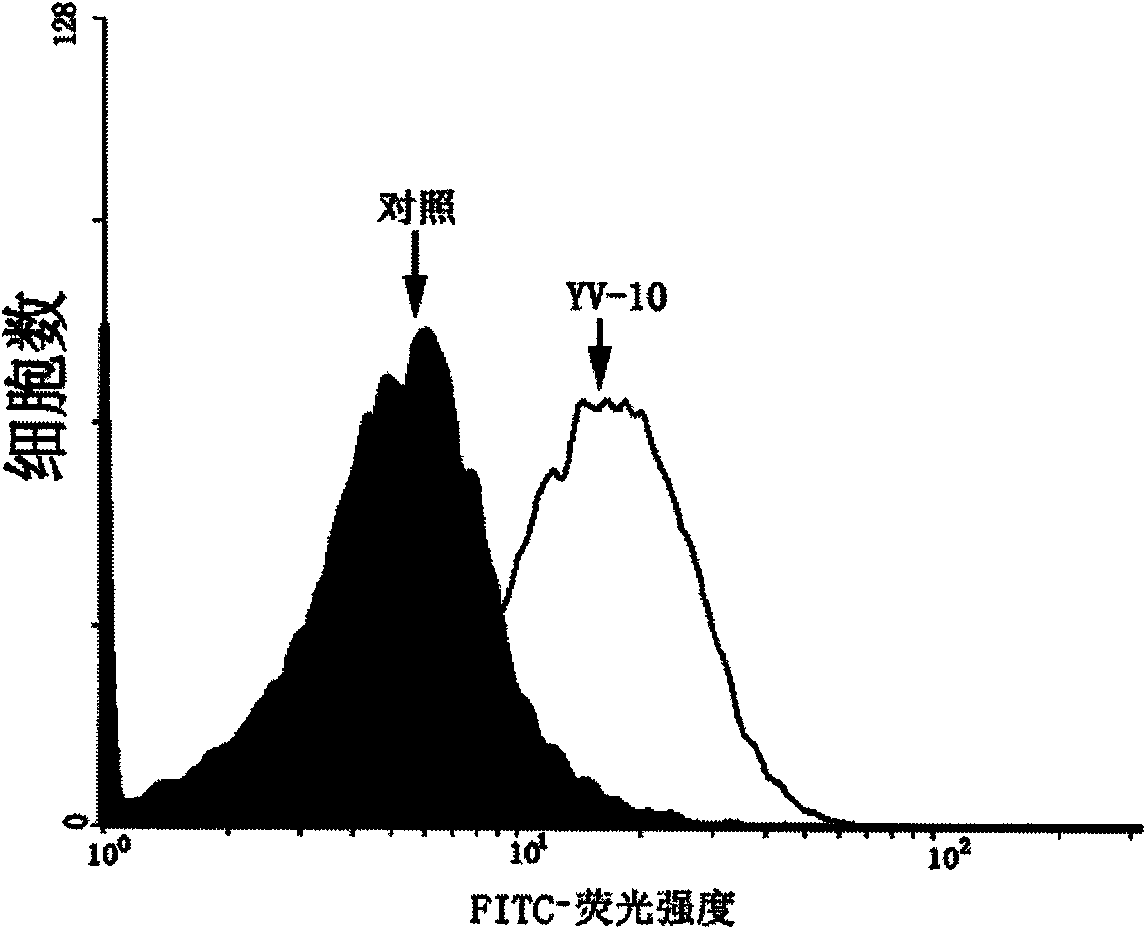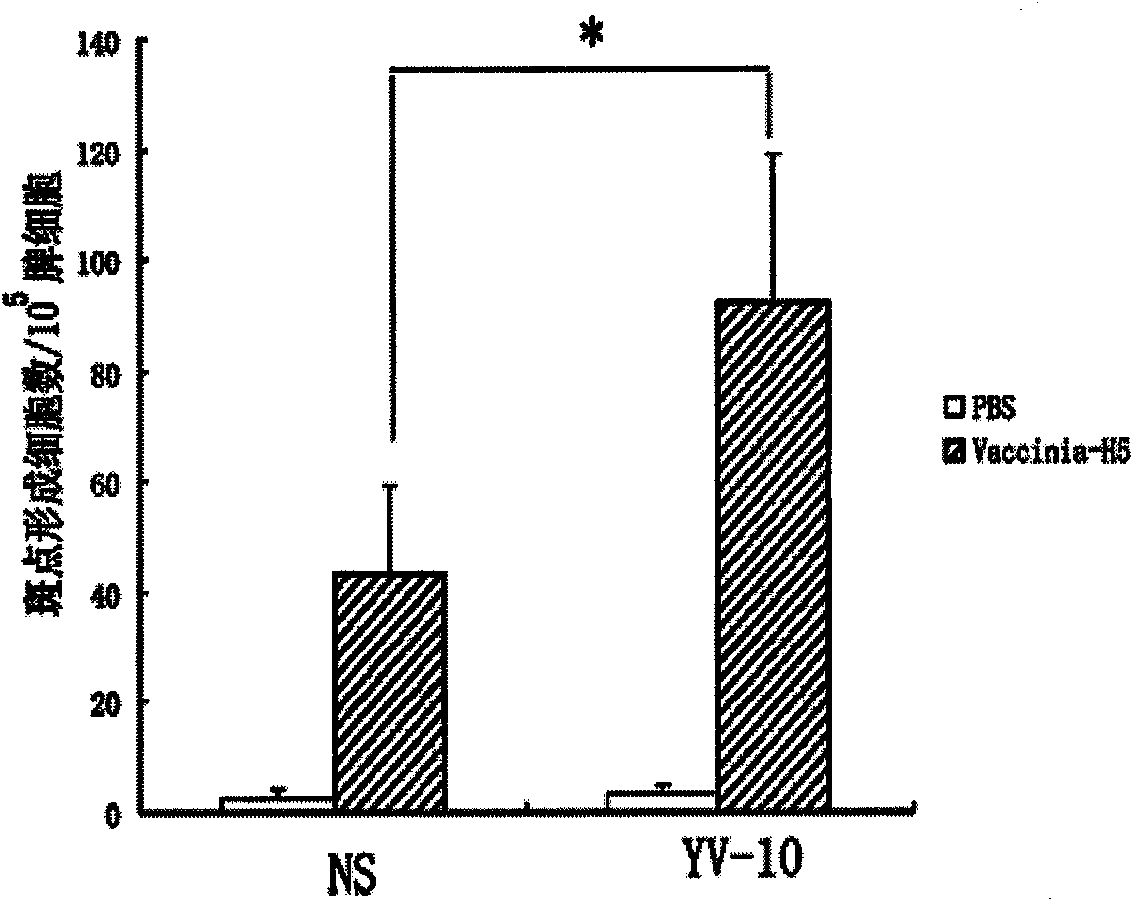CTL epitope polypeptide of avian influenza H5N1 virus and application thereof
A technology of epitope polypeptide and avian influenza, which is applied in the fields of application, antiviral agents, and medical preparations containing active ingredients, etc., can solve the problems that the H5N1 avian influenza virus T cell detection technology has not been established, and there is no H5N1 virus, etc.
- Summary
- Abstract
- Description
- Claims
- Application Information
AI Technical Summary
Problems solved by technology
Method used
Image
Examples
Embodiment 1
[0047] Example 1. Using refolding experiment to detect the binding ability of polypeptide and HLA-A*0201 molecule
[0048] In the refolding experiment, if the polypeptide can bind to the HLA-A*0201 molecule, then the polypeptide, HLA-A*0201 heavy chain and β2m can form a stable polypeptide-MHC-β2m ternary complex, which is shown in the molecular sieve chromatography A polypeptide-heavy chain-light chain complex peak appears.
[0049] 1. Preparation of HLA-A*0201 Heavy Chain Extracellular Region Inclusion Body
[0050] 1. Construction of recombinant plasmid I
[0051] The DNA encoding the extracellular region of the heavy chain of HLA-A*0201 (GENBANK ACCESSION NO. AY365426 from the 5' end nucleotides 73-897) was introduced into pET-28(a) to obtain recombinant plasmid I.
[0052] 2. Preparation of HLA-A*0201 Heavy Chain Extracellular Region Inclusion Body
[0053] The monoclonal strain of Escherichia coli BL21 (NEB Company, Cat. No. C2566H) transfected with the recombinant pl...
Embodiment 2
[0063] Example 2. Using T2 cell binding assay to detect the binding ability of polypeptides to HLA-A2 molecules on the surface of T2 cells
[0064] T2 cells are HLA-A*0201 positive and TAP molecule deficient cell lines. The cells cannot process endogenous antigens, but can present exogenous antigenic peptides. In the absence of antigenic peptides, the expression of HLA-A2 molecules on the cell surface is at a low level. Once a suitable exogenous antigenic peptide binds to HLA-A2 molecules on the surface of T2 cells, the expression of HLA-A2 on the cell surface Strength will be greatly improved.
[0065] T2 cells (ATCC, Cat.No.CRL-1992) were cultured in RPMI-1640 containing 10% fetal bovine serum (FBS, Gibico) (supplemented with 5.9% HEPES, 0.307% glutamic acid, 0.11% sodium pyruvate, 2 % sodium bicarbonate, 50u / ml penicillin, 50u / ml streptomycin), the incubator temperature is 37 ℃, containing 5% CO 2 . Take the cells in the logarithmic growth phase, wash them twice with se...
Embodiment 3
[0067] Example 3, ELISPOT analysis was used to detect the polypeptide-induced HLA-A*0201 / K immunized with the pcDNA3.1(+) vector carrying the H5HA gene b Ability of Splenocytes of Transgenic Mice to Produce Specific CTL Responses
[0068] HLA-A*0201 / K b Transgenic mice: purchased from Shanghai Second Military Medical University.
[0069] The preparation method of recombinant plasmid III (pcDNA3.1(+) inserted into Qinghai Lake H5N1 virus H5HA) is as follows:
[0070] Design the upstream primer (5'-GCTAGCCATGGAGAAAATAGTGCTT-3') and the downstream primer (5'-AATGCAAATTCTGCATTGTAAAAGCTT-3') to amplify the gene of H5HA (GENBANK ACCESSIONGNO.AAZ16277), cut with Nhe I and HindIII, and simultaneously digest pcDNA3.1 (+) The vector (Invitrogen, Catalog nos. V790-20) was double-digested with Nhe I and HindIII, and the digested product was placed at 18°C for overnight ligation, and then transformed into Escherichia coli DH5α (TAKARA, Cat. No. D9057). After clone screening and sequen...
PUM
 Login to View More
Login to View More Abstract
Description
Claims
Application Information
 Login to View More
Login to View More - R&D
- Intellectual Property
- Life Sciences
- Materials
- Tech Scout
- Unparalleled Data Quality
- Higher Quality Content
- 60% Fewer Hallucinations
Browse by: Latest US Patents, China's latest patents, Technical Efficacy Thesaurus, Application Domain, Technology Topic, Popular Technical Reports.
© 2025 PatSnap. All rights reserved.Legal|Privacy policy|Modern Slavery Act Transparency Statement|Sitemap|About US| Contact US: help@patsnap.com



